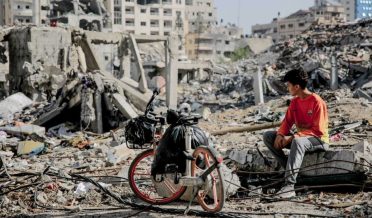
Dr Mohammed Ali OBE
Founder and chief executive,
QED Foundation
In August 2024 racially motivated riots took place in many locations across the UK fuelled by misinformation following the fatal stabbing of three young girls at a dance class in Southport. But has the situation on the ground improved over the past 12 months? False reports began to spread about the perpetrator being a Muslim asylum seeker, but these rumours were debunked when Axel Rudakubana, a 17-year-old born in Cardiff, Wales, was charged. In January he was sentenced to a minimum of 52 years in prison. Despite this, the riots continued, with refugee and asylum seeker accommodation particularly targeted. The situation led to calls for support, not just for those targeted but for staff in the voluntary sector who were experiencing mental health issues. Protests have flared up again recently, with a series of demonstrations outside The Bell Hotel in Epping, Essex, last month, reportedly leaving asylum seekers housed there too worried to go outside. In light of these new riots, minority communities and those with lived experience of racially motivated unrest have questioned whether anything has changed.
Culturally Unsafe
People with lived experience in the voluntary sector and beyond have highlighted the fear and mental health problems that have been created by the riots. In a recent report, the People’s Health Trust reiterated the ‘devastating’ effect the situation has had and found that people are also experiencing longer-term health effects, which respondents said have been ‘exacerbated by an increasingly hostile environment for minority ethnic communities’. Anj Handa is the founder of Inspiring Women Changemakers, an organisation that works to make the world a safer, fairer place for women. ‘I worked with 20 or so women and two grassroots organisations and they were directly impacted, as were others around the country and right now as well,’ Handa says. ‘If you think about it, women are primary care givers for children and older people. Some of them were working shifts and they couldn’t take their children to summer camps because it wasn’t safe.’
Handa says she also had to stop working for a long-term client organisation due to feeling ‘completely psychologically and culturally unsafe’.
Lewis Garland, chief executive of Fences and Frontiers, a charity that runs culturally based activities for refugees and asylum seekers in London, says he has not seen the fundamental changes that the sector has called for.
‘That’s why we’re seeing the rise in these tensions and far-right hate again,’ he says. ‘Housing large groups of people in asylum hotels makes them a collective target for the far right. Having asylum seekers in large groups on the edge of often poor communities creates this “us versus them” dynamic, which adds to that breeding ground of hate.’ The People’s Health Trust report recommends that the UK, Scottish and Welsh governments develop accessible support services for voluntary and community sector staff. Handa also says charity leaders and funders need to directly approach minority employees about requirements.
‘It’s not helpful to think “I don’t want to say the wrong thing”, because what is also possible is that most of us have learned how to judge positive intent,’ she says.
Desforges supports this idea and encourages the sector to be more proactive in dealing with issues.
‘I’d rather do something and get it slightly wrong and be corrected than do nothing,’ she says. ‘It’s about having a conversation, creating the spaces and being open to doing things differently. We can’t carry on doing everything the way we’ve always done it because we will continue to get the same results.’
QED Foundation is a social enterprise founded in 1990 to support the social and economic development of ethnic minorities in the United Kingdom.






